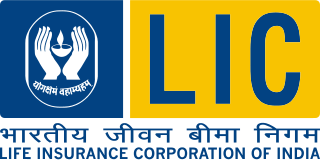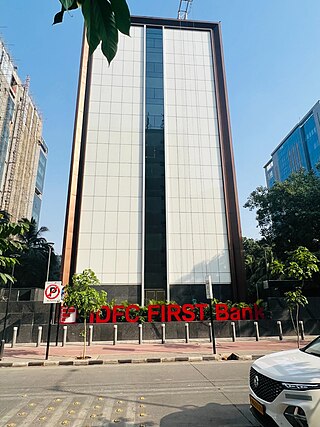Business is the practice of making one's living or making money by producing or buying and selling products. It is also "any activity or enterprise entered into for profit."

A security is a tradable financial asset. The term commonly refers to any form of financial instrument, but its legal definition varies by jurisdiction. In some countries and languages people commonly use the term "security" to refer to any form of financial instrument, even though the underlying legal and regulatory regime may not have such a broad definition. In some jurisdictions the term specifically excludes financial instruments other than equity and fixed income instruments. In some jurisdictions it includes some instruments that are close to equities and fixed income, e.g., equity warrants.
An initial public offering (IPO) or stock launch is a public offering in which shares of a company are sold to institutional investors and usually also to retail (individual) investors. An IPO is typically underwritten by one or more investment banks, who also arrange for the shares to be listed on one or more stock exchanges. Through this process, colloquially known as floating, or going public, a privately held company is transformed into a public company. Initial public offerings can be used to raise new equity capital for companies, to monetize the investments of private shareholders such as company founders or private equity investors, and to enable easy trading of existing holdings or future capital raising by becoming publicly traded.

China Development Bank (CDB) is a policy bank of China under the State Council. Established in 1994, it has been described as the engine that powers the national government's economic development policies. It has raised funds for numerous large-scale infrastructure projects, including the Three Gorges Dam and the Shanghai Pudong International Airport.

The Shanghai Stock Exchange is a stock exchange based in the city of Shanghai, China. It is one of the three stock exchanges operating independently in mainland China, the others being the Beijing Stock Exchange and the Shenzhen Stock Exchange. The Shanghai Stock Exchange is the world's third largest stock market by market capitalization. It is also Asia's biggest stock exchange. Unlike the Hong Kong Stock Exchange, the Shanghai Stock Exchange is still not entirely open to foreign investors and often affected by the decisions of the central government, due to capital account controls exercised by the Chinese mainland authorities.

Life Insurance Corporation of India (LIC) is an Indian multinational public sector life insurance company headquartered in Mumbai. It is India's largest insurance company as well as the largest institutional investor with total assets under management worth ₹52.52 trillion (US$630 billion) as of March 2024. It is under the ownership of Government of India and administrative control of the Ministry of Finance.

The Nairobi Securities Exchange (NSE) was established in 1954 as the Nairobi Stock Exchange, based in Nairobi the capital of Kenya. It was a voluntary association of stockbrokers in the European community registered under the Societies Act in British Kenya. The exchange had 66 listed companies in February 2021.
A special-purpose acquisition company, also known as a "blank check company", is a shell corporation listed on a stock exchange with the purpose of acquiring a private company, thus making the private company public without going through the initial public offering process, which often carries significant procedural and regulatory burdens. According to the U.S. Securities and Exchange Commission (SEC), SPACs are created specifically to pool funds to finance a future merger or acquisition opportunity within a set timeframe; these opportunities usually have yet to be identified while raising funds.

Edward Haggai Ntalami (19 March 1947 – 20 November 2014) was a business executive and the former CEO of the Capital Markets Authority (CMA) of Kenya. Ntalami was involved in Kenya's capital markets. He served for over two decades in financial planning and management in the fields of commerce and industry, public sector. Prior to his appointment at the CMA, Ntalami was the executive director of Sterling Securities Limited, a local stockbroker. He was appointed Chief Executive, Capital Markets Authority in December 2002 by President Mwai Kibaki. He completed his term in office on 17 December 2007. Seven months after he left Stella Kilonzo became head of CMA.

Nepal Bank Limited is the first commercial bank of Nepal. It was established in 1937, by Juddha Shumsher, which marked the beginning of an era of formal banking in Nepal.
According to the Fourth Five-Year Economic Development Plan (2005–2010), the Privatization Organization of Iran affiliated with the Ministry of Economic Affairs and Finance is in charge of setting prices and ceding shares to the general public and on the Tehran Stock Exchange. The privatization effort is primarily backed by reformist members of the Iranian government and society who hope that privatization can bring about economic and social change.
ACLEDA Bank Plc. is a public limited company, formed under the Banking and Financial Institutions Law of the Kingdom of Cambodia. Based in Phnom Penh, with 261 offices covering all provinces, as well as 42 in Laos, and seven in Myanmar. ACLEDA started out in 1993 when it began providing micro credits to war victims. By now it is Cambodia's major commercial bank. ACLEDA had more than $5,244 million in total assets as of December 31, 2017, and more than $3,117 million in deposits, with over $3,085 million in loans outstanding. According to the National Bank of Cambodia, ACLEDA Bank is the largest domestic commercial bank in terms of total assets and number of clients, with more than 1.7 million depositors as of December 31, 2017.
Reliance Power Limited (R-Power), formerly Reliance Energy Generation Limited (REGL) is a part of the Reliance Group. It was established to develop, construct, operate and maintain power projects in the Indian and international markets. Reliance Infrastructure, an Indian private sector power utility company and the Reliance ADA Group promote Reliance Power. The present CEO of Reliance Power is K. Raja Gopal since 2 May 2018.

WorldCall Telecom Limited is a Pakistani telecommunication and multimedia service provider based in Lahore, Pakistan. It is listed on the Pakistan Stock Exchange.

China International Capital Corporation Limited is a Chinese partially state-owned multinational investment management and financial services company. Founded in China in 1995, CICC provides investment banking, securities and investment management services to corporations, institutions and individuals worldwide.

Power Finance Corporation Ltd. (PFC) is an Indian public sector company engaged in infrastructure finance activities. Established in 1986, it provides financing for the Indian power sector and is under the admistrative control of the Ministry of Power, Government of India. PFC was classified as a 'Maharatna' enterprise on 12 October 2021.
Geojit Financial Services Ltd. is an investment services company in India headquartered in Kochi, Kerala. It operates a network of offices across India and the Middle East. Geojit was the first company in India to launch online-trading facilities, develop franchise models of sub-broking, form joint ventures in West Asia and the first to begin commodity futures trading in pepper, cardamom, gold and silver in India.

Infrastructure Development Finance Company Limited, more commonly known as IDFC, was a development finance institution based in India under the Department of Financial Services, Government of India. It provided finance and advisory services for infrastructure projects, as well as asset management and investment banking.
NMB Bank Nepal is a commercial bank in Nepal with headquarters in Kathmandu. The bank is licensed by central bank of Nepal, the Nepal Rastra Bank, and has 202 branches across the nation providing retail and commercial banking services.

IDFC First Bank is an Indian private sector bank formed by the merger of the banking arm of Infrastructure Development Finance Company and Capital First, which was an Indian non-bank financial institution.












